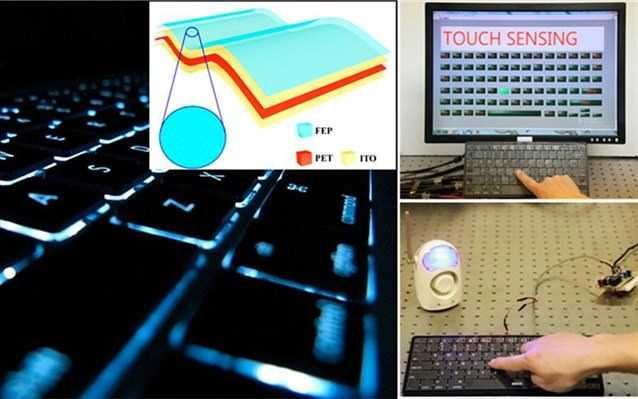IKB: Perhaps the only thing that does not do is to type the user's own texts instead of it: the reason for the "smart" keyboard developed by researchers, which is self-cleaning, self-powered energy and can "recognize" the user from the way he is typing.
Όπως αναφέρεται σε δημοσίευμα του PhysOrg, η συσκευή, που παρουσιάστηκε στο ACS Nano, θα μπορούσε να εμποδίσει μη εξουσιοδοτημένους users from acquiring direct access on computers.
Professor Zhong Lin Wang (Georgia Tech) και οι συνάδελφοί του επισημαίνουν ότι η προστασία μέσω κωδικών είναι ίσως ο πιο κοινός τρόπος με τον οποίο κάποιος μπορεί να ελέγξει το ποιος έχει πρόσβαση στον υπολογιστή του. Ωστόσο, όπως φαίνεται από τις υποθέσεις κυβερνοεπιθέσεων και hacking that now regularly see the light of day, the passwords themselves are now vulnerable, so the goal is to find a safe, cost-effective and user-friendly way to protect one's computer.
The researchers developed a "smart" keyboard that can "grasp" typing patterns, including keystroke and speed, distinguishing one user from the other. Even if someone knows the code, they can not access the computer as they type differently. Also, the keyboard collects the action resulting from typing to feed the same, or some other small device. At the same time, its special coating removes dust and dirt in general.
As stated in the research abstract, the "smart keyboard" (IKB - Intelligent Keyboard) can potentially be used not only in self-powered electronic devices and in its space cyber securityand device security, but also in areas such as Artificial Intelligence.
Source: naftemporiki.gr






